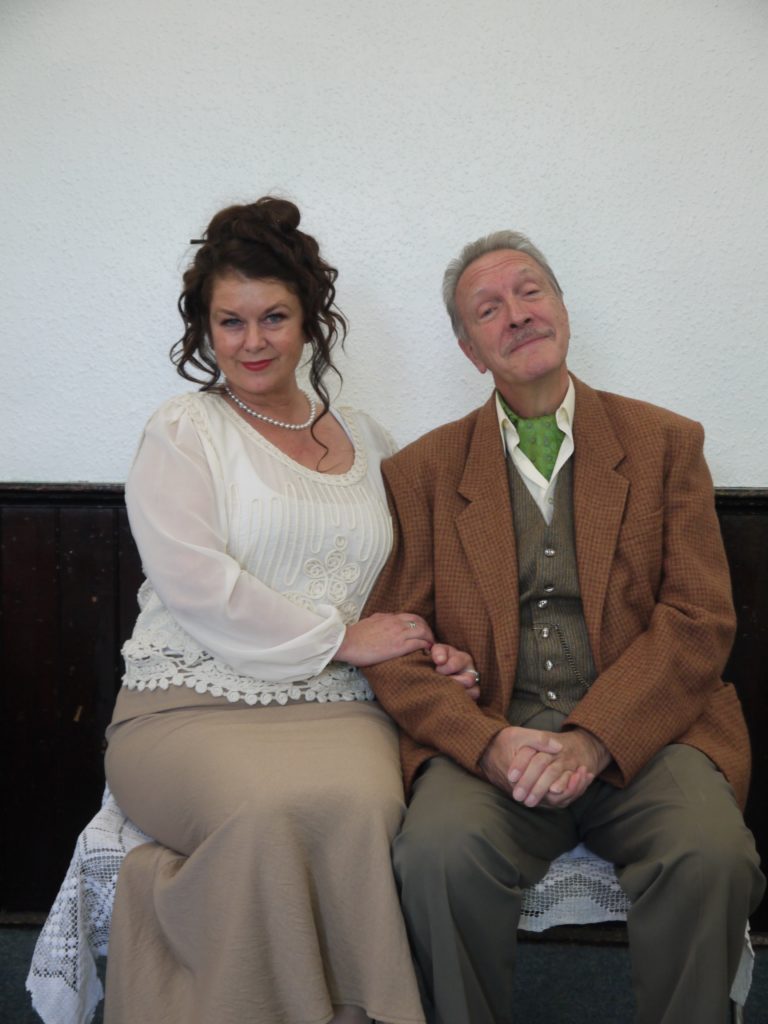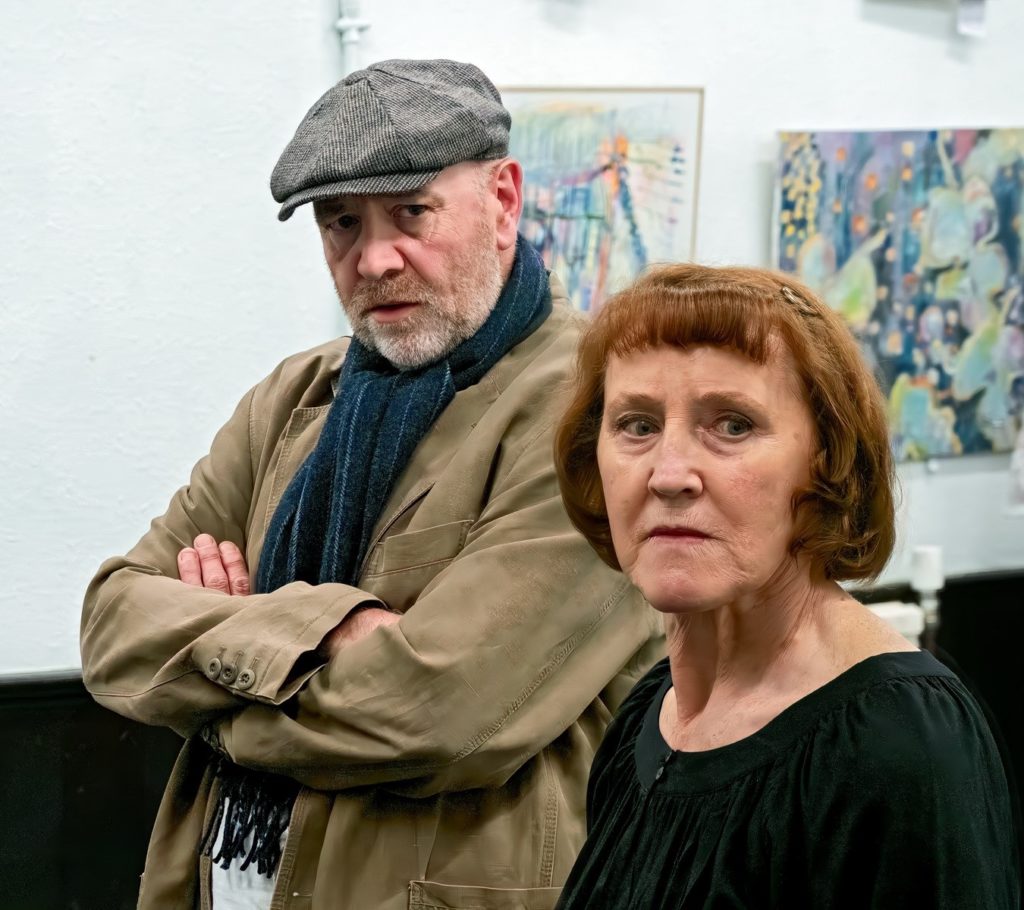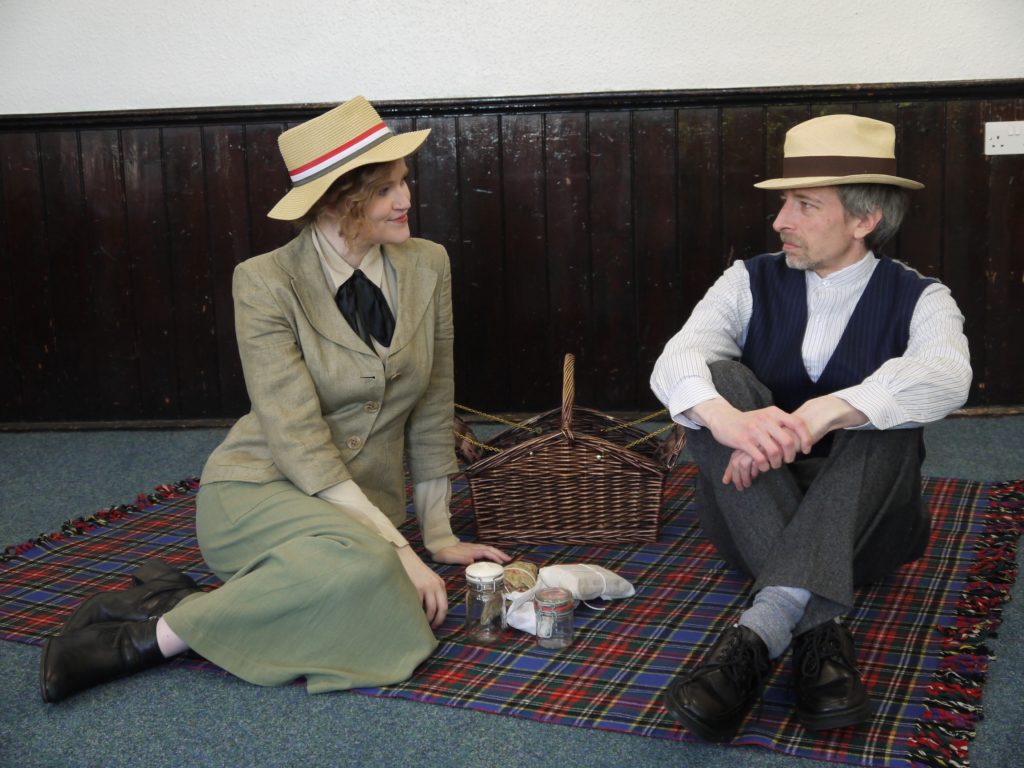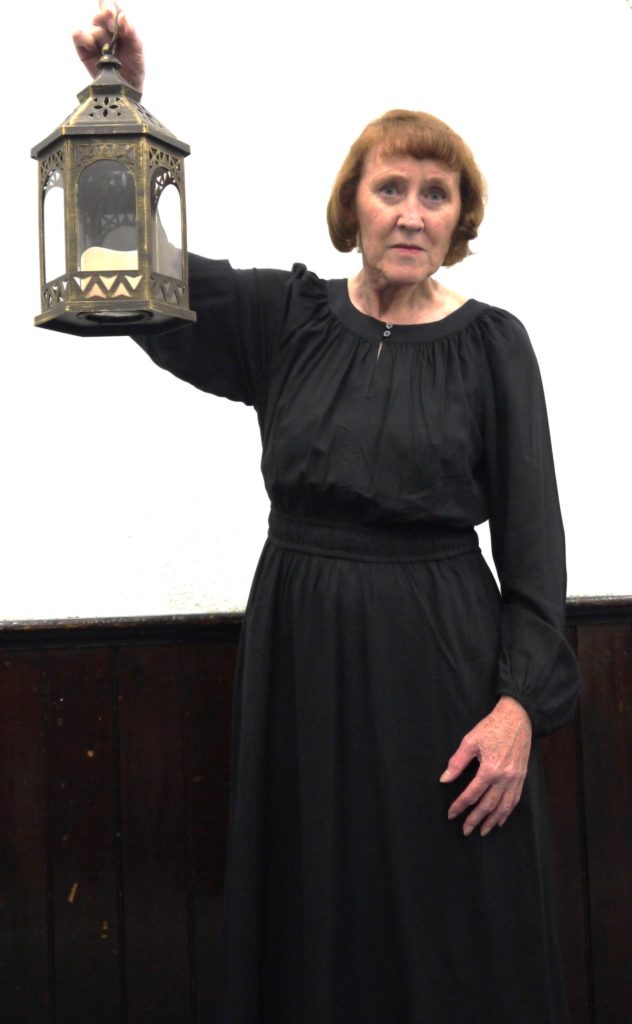
YORK Actors Collective make their York Theatre Royal debut in the Studio with this week’s revival of J M Barrie’s haunted house drama Mary Rose, adapted and directed by Angie Millard.
Formed by a group of like-minded actors with the aim of producing entertaining and thought-provoking theatre, the company was launched in March 2023 with Joe Orton’s 1964 black comedy Entertaining Mr Sloane, followed in February 2024 by the gritty improvisational piece Beyond Caring, Alexander Zeldin’s topical exposé of the social damage inflicted by zero hours contracts. Both were staged at Theatre@41 in York.
Now comes Mary Rose, a third Barrie drama to play York Theatre Royal in recent years after the 2022-2023 pantomime All New Adventures Of Peter Pan and Northern Broadsides’ touring production of his Regency comedy Quality Street in May 2023.
In this one, an old Yorkshire manor house for sale – Sussex in the original – is haunted by the ghost of a young woman who once lived there.
Thirty-seven years earlier in 1913, a young girl, Mary Rose, went missing on an island in the Outer Hebrides while her father was out of sight. After a month, she mysteriously returns, unaware that she had been away and with no memory of the time she spent missing.

Then, as a young married woman in 1938, Mary Rose persuades her husband to take her back to the island, only to disappear again. She reappears 22 years later, but she has remained the same while her husband, parents and son have all aged.
Featured at number ten in Michael Billington’s August 2020 list of Forgotten Plays in the Guardian, Barrie’s “strange, sinister Hebridean ghost story about the intensity of mother-son relationships and the universal grief for loss” has long sparked Angie Millard’s intrigue.
“Barrie uses dimensions of time to great effect,” she says of a play that covers a period of 41 years, during which there were two World Wars and massive changes in British society.
“His treatment of love, loss and unwavering hope draws in an audience and gives it universality. I have adapted the script to appeal to modern thinking and offer a little more explanation than Barrie provided but his themes are intact. It remains a moving tribute to mother-love, loss and final reconciliation.”
The production run could not be better timed, coinciding with Halloween on October 31. “The strange and ghostly atmosphere of the play fits beautifully into the autumn slot, which includes Halloween and is a time for considering other worldliness,” says Angie.

“I’ve wanted to direct Mary Rose for many years as it was a favourite of my mother’s, who saw it in Sheffield and thought it was a beautiful and charming story. I wanted York Actors Collective to produce something with a lot of theatrical effects, a contrast to what we have done before.
“I suggested this play with two or three other ideas to Juliet [Forster, York Theatre Royal’s creative director] and she settled on this one.”
Barrie’s supernatural play has been “severely adapted” by Angie. Why? “Because you can see the difference between Edwardian and modern-day audiences just by reading it,” she says. “I’ve changed it from three acts with two intervals to three scenes before the interval and two after, reducing the running time by about 20 minutes.
“I’ve also cut out one of the characters, Mr Morland’s friend. They would just talk about the value of art, and though it was supposed to be funny, it just didn’t work for a modern audience.”
Angie has capitalised on Halloween week, “but the ghost story is only one aspect of it,” she says. “It’s a story about mother-love, about [Mary Rose] having a child and losing that child, and how that feels when you deeply love the child. It’s all about loss, framed in a ghost story.

“In rehearsals, it’s been about exploring characters and the loss they feel. We’ve had crying in the rehearsal room, and I defy anyone to watch the last scene without a lump in their throat.”
Key to Angie’s decision to “offer a little more explanation” is her exploration of Mary Rose. “I’m trying to express her state of mind,” she says. “Mary Rose is clearly autistic, hiding in the apple tree as a child when the Morland family story opens in 1909. At 18, she could equally be taken for a child, talking about playing games.
“She’s too young for her age; her mother and father [Mr and Mrs Morland] recognise this, and in now having an actor in his 40s – rather than one in his 20s – as her husband, it works really well for having the bigger age discrepancy as it was a time when men married young women and no-one thought anything of it.”
You will note that Barrie’s Mary Rose mirrors Peter Pan in the theme of mothers and lost sons: Barrie grew up as a “lost boy”, neglected by his grieving mother after the death of his elder brother. Like Peter Pan too, the character of Mary Rose does not grow up.
“I’m also fascinated that Alfred wanted to do Mary Rose’s story as a film,” says Angie. “He could see the mileage in it, that strangeness typical of Hitchcock. “

In Angie’s cast are Beryl Nairn as Mrs Ottery; Chris Pomfrett as Harry; Tony Froud as Mr Morland; Victoria Delaney as Mrs Morland; Clare Halliday as Molly; Xandra Logan as Mary Rose; Joy Warner as Cameron and Laurence O’Reilly, Angie’s poet son, as Simon, stepping into the role at three weeks’ notice.
York Actors Collective presents J M Barrie’s Mary Rose, York Theatre Royal Studio, October 30 to November 2, 7.45pm plus 2.30pm Thursday and 2pm Saturday matinees. Box office: 01904 623568 or yorktheatreroyal.co.uk.
Did you know?
MARY Rose premiered in London at the Haymarket Theatre in April 1920, running until February 1921. Fay Compton played Mary Rose, a role written for her by Barrie. The play opened in New York on Broadway in December 1920, running at the Empire Theatre for four months with Ruth Chatterton as Mary Rose.
A 1972 production by Manchester’s 69 Theatre Company starred American actress Mia Farrow, transferring to London.
Alfred Hitchcock planned to turn the play into a film, with Tippi Hedren in the title role, but was thwarted by Universal Studios.
